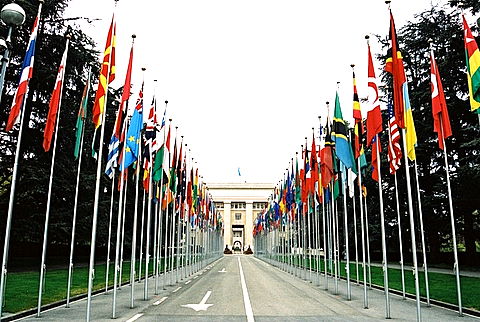Human Rights Council: Session 11
Agenda Item 3: General Debate-Special Rapp. on Freedom of Expression
Oral Intervention
8 June, 2008
Delivered by Jeremie Smith
Thank you Mr. President:
This is a joint statement by CIHRS and the Asian Legal Resource Centre. We would like to address the report of the Special Rapporteur on Freedom of Expression.
We fully support the important research and conclusions of the Special Rapporteur on Freedom of Expression concerning acceptable limitations to the right to Freedom of Expression, in particular CIHRS strongly agrees that the concept of Defamation of Religions is incompatible with international standards of Freedom of Expression. A fact made apparent if one observes that Defamation of Religion and related concepts are consistently used by states to violate the rights to equality, freedom of expression and other fundamental rights of their citizens. This is especially true of CIHRS’ area of operation. For example: In Saudi Arabia legal proceedings against people for religious defamation and blasphemy are widespread and have resulted in orders of execution. In Egypt an Administrative court in Cairo ruled on May 12, 2009 that “Freedoms of expression and public rights should be restricted by maintaining the fundamentals of religion, morality and patriotism.”
We notes with alarm increasing attacks and repression of journalists and media in the Middle East and Arab region, especially in conflict situations. In Yemen newspapers are often censored or prevented from being distributed if they attempt to publish stories on the ongoing conflict in northern Sa’daa province or civil unrest in the southern region. On May 13, 2009 armed security forces shot at the offices of the Aden-based Arabic daily Al-Ayyam killing two men and injuring another in retaliation for the paper’s publication of reports of unrest in the southern part of the country.
Finally, CIHRS expresses deep concern about the extraordinary attacks directed at the Special Rapporteur on the right to freedom of opinion and expression, Mr Frank La Rue during the presentation of his report on the 3rd of June. Many of these states concluded their statements on the report of the Special Rapporteur by threatening to have Mr La Rue stripped of his position unless he conforms to their interpretation of his mandate in the future.
We view this attack as a unprecedented attempt to intimidate a mandate-holder from exercising his independence and right to freedom of expression, as well as part of a larger attempt to begin to use the Code of Conduct of Special Procedures to erode the independence of all Special Procedure mandate holders. Such behaviour threatens the fundamental purposes of this Council. The way in which this body moves forward concerning this issue will no doubt become a defining moment in its history.
CIHRS supports the opinion expressed by many delegations reminding Human Rights Council member states that, under the Code of Conduct for Special Procedures Mandate-Holders, Special Rapporteurs must be independent in carrying out their mandate. Such independence must include the freedom to comment upon the subject of resolutions previously adopted by UN human rights bodies which, in their view, are contrary to established principles of international law.
Thank you Mr. President
Share this Post

